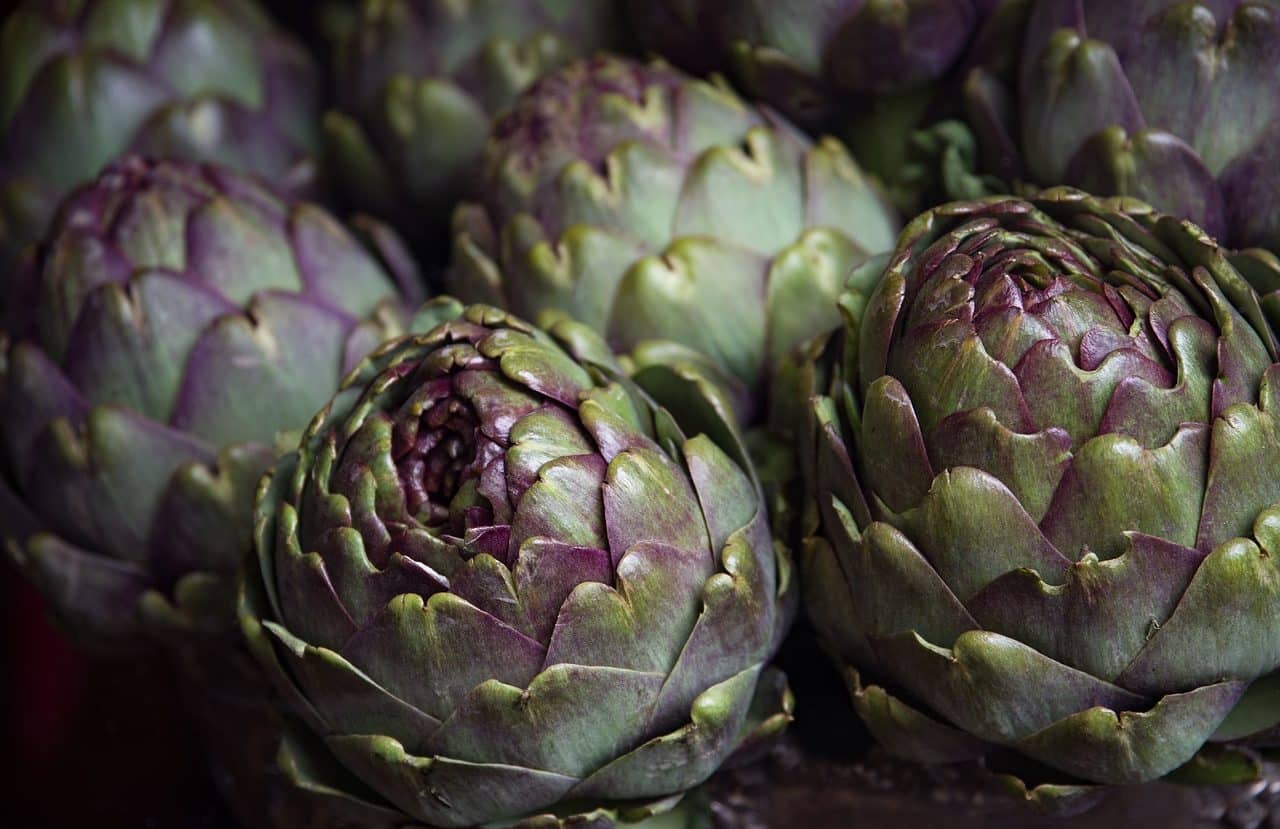
The scientific name of the artichoke is Cynara scolymus.
The artichoke is a plant whose heads (flowers found in a receptacle) are used as food . The term is equivalent, depending on the region , to artichoke , alcaucil or alcarcil .
Generally, the idea of artichoke refers to the plant species whose scientific name is Cynara scolymus . Native to the Mediterranean area, this perennial plant can reach a height of two meters.
The leaves of the Cynara scolymus are pinnately lobed with a length exceeding 60 cm; Its lobes do not have spines and its underside is tomentose (that is, its surface is covered with a layer of hairs). Regarding their capitula (clustered or open inflorescences in which the peduncle widens and forms a disc of a certain thickness called the common receptacle ), we can say that they are large in size and have bluish flowers, which makes them very attractive.
Artichoke properties
The artichoke contains high amounts of carbohydrates and water . It also contains several vitamins (such as vitamin B3 , vitamin B1 , vitamin B6 , riboflavin, thiamine and niacin) and minerals ( calcium , phosphorus , iron , potassium , sodium , magnesium and others).
Among its components that are beneficial for the body , sterols stand out (which minimize the cholesterol absorbed by the intestine), cynarin (a bitter principle acts as a diuretic and increases bile secretion), inulin (a type of carbohydrate complex), mucilage (a type of soluble fiber also found in carob, flax and mustard seeds), acids (caffeic, caffeoylquinic, ferulic and dicaffeylquinic) and flavonoids (cynnaropicrin and cynnaroside, a glycoside which is derived from luteolin).

Artichokes can be consumed in different ways.
Your benefits
The benefits of the artichoke for the proper functioning of the liver are diverse, since its active ingredient, cynarin, protects it and makes this plant a suitable complement for treatments against liver diseases such as insufficiency, hepatitis, jaundice or fatty liver.
The cynarin present in the artichoke also enhances biliary function so that fats can be digested correctly and is used to treat problems such as indigestion, gas and dyspepsia caused by gallstones.
Cholesterol can also be regulated with artichoke, since it is a liver tonic with ideal properties to reduce it; We must not forget that the liver is the organ that most influences the metabolization of fats. To achieve a reduction in the level of cholesterol in the blood, the main actors are cynarin and the acids of this plant, which can also help in the prevention of arteriosclerosis and the treatment of hypertension.
Another application of the artichoke is in diets to lose weight. To do this, it is advisable to complement it with other foods low in fat and rich in fiber ; It is precisely the fiber in the artichoke that ensures that the body does not reabsorb fats from the bile, but rather eliminates them through feces.
Recipes with artichokes
There are various gastronomic preparations that are made with artichokes. Typically, as a first step, the artichokes are washed with plenty of drinking water . Then the outer leaves that, due to their hardness, are not suitable for consumption are extracted, and the stem is also scraped to remove the hardest fibers. Finally, they are placed in boiling water with salt and lemon juice until it is easy to extract the leaves.
Once the artichokes are cooked, they can be consumed in different ways, both the leaves, the stem and the heart . Many people choose to eat artichokes after boiling them, adding some sauce or dressing. It is also possible to make artichoke cakes or prepare stuffed artichokes , among many other preparations.
